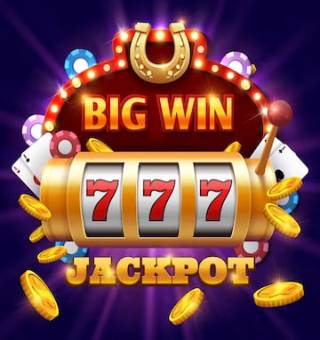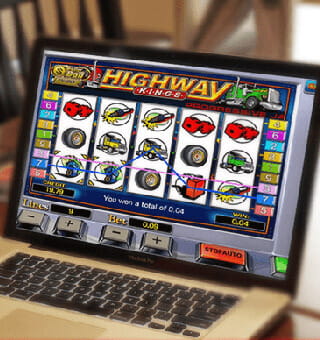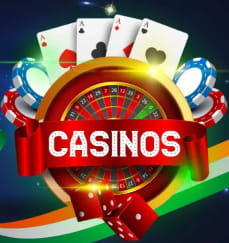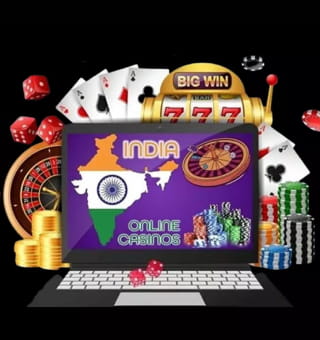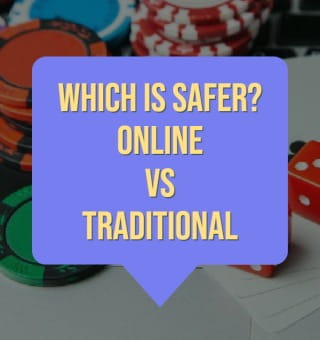Content
The beginning of public and commercial use of the Internet in the early and mid 1990s introduced the possibility of online gambling which first occurred in 1995 (Romney, 1995). Rapid expansion followed with yearly increases in the number of online gambling sites, types of gambling available and jurisdictions granting licences to allow internet gambling. Revenues similarity increased from approximately US$2.2 billion in 2000 to US$15.2 billion in 2006 (Christian Capitol Advisors, 2005; 2007).
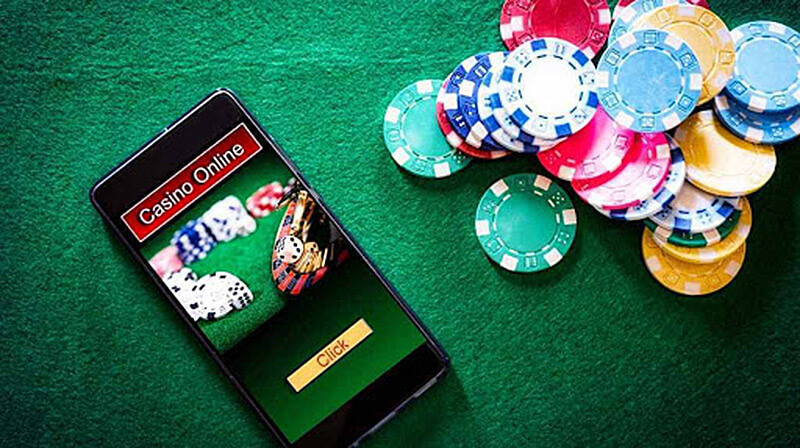
In January 2008 there were 2,132 Internet gambling web sites owned by 477 companies from 49 different jurisdictions. The majority of these companies are privately owned and the online sites consist of 786 online casinos, 517 poker rooms, 408 sports and racebooks, 289 online bingos, 53 skill game sites, 43 lottery sites, 21 betting exchanges, and 15 backgammon sites (Casino City, 2008). Sports and horse race betting, online casinos and poker rooms are estimated to account for 95% of the total market share and estimates suggest that the United States and Asia Pacific region are the largest markets, followed by Europe (RSeConsulting, 2006).
Online Casinos
Online casinos enable gamblers to play and wager on casino games through the Internet. Online casinos may be web-based where users play casino games without downloading software to the local computer (e.g. using Java, Flash or Shockwave plugins) or download-based, in which players are required to download the software client in order to play and wager on the casino game offered. Download-based online casinos generally run faster, although the initial download and installation of the software takes time and there is the risk of the program containing malware. Online casinos generally offer odds and payback percentages that are comparable to land-based casinos with appropriately programmed random number generators used to ensure that the numbers, cards or dice appear randomly. A typical selection of gambling games offered at an online casino might include baccarat, blackjack, craps, roulette, slot games and poker.
Many online casinos offer signup bonuses to new players, which usually require a minimum amount of wagering before allowing a cash-out, although some bonuses require no deposit to claim them including bonus credits/money, free spins on particular games and play for a predetermined period of time with a set amount of dollars. Players must open an account with the casino, which is generally done with a credit or debit card or through money or bank wire transfers.
Online Bingo
Online bingo is similar to online casino games with sites using random number generators to drawn virtual balls. Many sites offer several bingo games with different features, types of games and costs of play. Bingo sites also commonly feature a chat application which encourages players to chat with each other, creating a friendly and communal atmosphere and functioning as an effective retention tool. A survey commissioned by St Minver, the operator of Europe’s largest poker network and the world’s biggest bingo network, showed that online bingo was most popular in the U.S., Japan and the U.K.
Online Poker
Although the first Internet poker room went online in 1998, in 2003 online poker experienced a major expansion in popularity following the widespread following of televised poker in the United States and recognition of online poker players as celebrities. This resulted in an increase in revenue generated by online poker from US$365 million in 2003 to approximately US$2.4 billion in 2006 (Christiansen Capital Advisors, 2005). Figures released at the beginning of 2008 suggest that the popularity of online poker shows no signs of weakening. According to the online poker tracking site, PokerScout, January 7th 2008 represented a new industry-wide peak player record, exceeding the previous record of 95,000 concurrent real-money players.
Online poker rooms allow players to play for low stakes (as low as 1c) and often offer poker freerolls (where there is no entry fee), attracting beginners. The major poker sites offer various features and incentives to entice new players including bonuses based on the number of hands played and tournaments by which the winners gain entry to real-life poker tournaments. Online poker rooms may also offer online poker schools that teach the basics and significantly speed up the learning curve for novices. Many online poker rooms also provide free money play so that players may practice these skills in various poker games and limits without the risk of losing real money, and generally offer the hand history of played hands for analysis and discussion. However, it has been noted that, relative to money sites, practice sites have an over-inflated pay-out rate.
There are substantial differences between online poker gaming and conventional inperson gaming. One obvious difference is that players cannot see each other resulting in players using different means to predict player behaviour including betting patterns, reaction time, speed of play etc. As online poker is not delayed by shuffling and dealing cards the rate of play is much faster than in a physical casino and, depending on the site, a player might play several tables simultaneously. To prevent collusion between players online poker room security employees can look at the hand history of the cards previously played by any player on the site to examine patterns of behaviour and also check players’ IP addresses in order to prevent players at the same physical location from playing on the same tables. Many online poker sites are certified by bodies such as the Kahnawake Gaming Commission and other major auditing firms like Price Waterhouse Coopers to review the fairness of the random number generator, shuffle, and payout for some sites.
A survey of Internet poker players found that the typical player was male (73.8%), aged between 26-35 (26.9%) play 2-3 times per week (26.8%), have played for 2 to 3 years (23.6%), play for between 1 to 2 hours per session (33.3%), play one (24.1%) or two (24.0%) tables at a time, and play at minimum stake levels of $0.5 to $2.00 (61.2%) (eCOGRA, 2007).
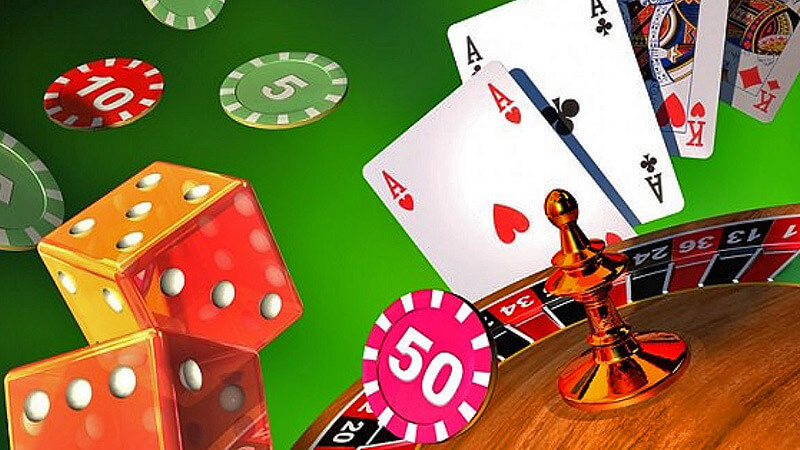
Online Lotteries
Online lotteries were one of the primary forms of Internet gambling with the first case of money being wagered over the Internet being the purchase of lottery tickets from the International Lottery in Liechtenstein for a manual drawing in 1995 (Romney, 1995). Online lottery sites allow gamblers to play out-of-state or international lotteries online through the purchase of tickets through the Internet. These sites also offer the results for international lotteries. As with other forms of Internet gambling, online lottery sites are often offshore and unregulated meaning that there is no guarantee that online services are actually purchasing tickets or will pay any winnings and there are few options for recourse over player dissatisfaction. Furthermore, lottery scams have become increasingly prevalent with emails being spammed to individuals informing them that they have won a lottery prize and inviting them to reply with their contact details to claim the winnings in an attempt to steal people’s identity and money.
Online Sports Betting and Pools
Online sports betting allows individuals to wager on the outcome of a diverse variety of sports and contests through the Internet. Increasing sophistication and options of wagers allow gamblers to bet on almost any aspect of a contest from who will win, who scores first, overall combined scores, etc. Surveys of online sportsbook gamblers in Australia and Europe have found that the majority of customers are male (85-92%) (Labrie, LaPlante, Nelson, Schumann, & Shaffer, 2007; Woolley, 2003). Woolley (2003) found that the most common age group was 35 – 54, and the average age of European sports bettors was 31 (SD = 10) (Labrie et al., 2007).
Betting exchanges are sites that create a marketplace for bettors where potential wagers are posted on certain events (with accompanying odds and stake size) which individuals may accept (Williams & Wood, 2007). Although these wagers primarily focus on sporting and racing events, they also include wagers ranging from the outcome of politics and events on reality television, to behaviour of popular celebrities. For example, one of the largest betting exchanges Betfair has launched Tradefare, a financial exchange that enables customers to trade on their own prices, speculate on diverse markets and bet on financial spreads and Betfair also allows customers to speculate on climate indices developed to track the extent (or otherwise) of global warming.
Skill Gaming Sites
Skill game sites offer a wide variety of games including work games, puzzles, strategy games (e.g. mahjong, chess), sports (e.g. billiards, golf, racing), cards, arcade, trivia and video games (Williams & Wood, 2007). Skill games differ from casino games, bingo or poker because they are not considered “games of chance” as the outcome of a game centres on the player’s skill and/or knowledge of a certain contest of subject. As such, these sites are considered legal in the U.S. and other jurisdictions that ban Internet gambling. These sites typically offer tournaments whereby a player pays a fee to enter and the winner collects a prize in addition to single-player and per-game wagers.
Mobile Gambling
Mobile gambling refers to gambling done on a remote wirelessly connected device. Early versions of mobile gambling services involved subscribers receiving SMS text alerts for lottery results or horse racing odds, which was followed by the launch of the Hong Kong Jockey Club’s SMS-based betting services in 2000, allowing gamblers to use their headsets to bet on horse races. The emergence of sophisticated handsets and advanced mobile data services now allows users to download Java-based gambling applications over higher-speed wireless networks and use video capabilities. Estimates on the size of the mobile betting market vary widely. Informa Telecoms & Media predict worldwide mobile gambling revenues to grow from $1.2 billion in 2005 to $7.6 billion in 2010, divided amongst the principal categories of sports and spread betting, mobile lotteries and scratch-cards, and casino and skill games. Figures from Juniper Research indicate that global mobile betting will reach $19.3 billion by 2009 and be dominated by mobile lotteries.
Although Europe is currently the largest market for mobile gambling, Asia is predicted to be a key region based on estimates of strong growth, particularly of mobile lotteries that don’t require 3G capabilities to succeed (Juniper Research, 2006). These predictions are based on the strong culture of lottery in this region and predicted growth in subscriber numbers in Asia, which may primarily come from the lower usage end of the market including low stake lottery players. However, the capacity for mobile gambling growth is linked to regulatory climates. This is clearly demonstrated in Europe where mobile gambling is gaining popularity at rapid rates in the presences of more relaxed legislation. In the U.K. remote gambling via the Internet, interactive television and mobile phones is permitted, but operators must obtain a licence before offering remote gambling services. Elsewhere in Europe, state gambling organisations and mobile operators have actively launched mobile lotteries enabling mobile ticket purchases and electronic ‘scratch cards’. Casino games are also offered and mobile sports betting is popular in Europe with many service providers, including 3UK, Vodafone and Orange, offering users the capabilities to place bets through SMS or WAP while watching live racing on their phones.
Currently over 100,000 mobile users in Hong Kong buy lottery tickets or bet on football matches or horse racing using mobile phones. However, in other jurisdictions in the Asia-Pacific region, mobile gambling is still a new phenomenon, working through cultural and regulatory barriers. Some locally licensed gambling operators are finding ways around the ambiguities or restrictions of current legislation by offering games of chance where no actual money is involved. For example, Two Way TV, which provides interactive TV and mobile applications and technology in Australia and Asia, offers playfor-fun games to users for a download fee. Similarly, the demand for using mobile phones for gambling-related activities can be satisfied in countries where mobile gambling is prohibited without real betting. In Singapore, mobile operator M1 offers notifications of lottery results, soccer odds and match results on a pay per request or monthly subscription fee and in China certain providers offer users SMS-based alerts of various lotteries.
Interactive Television
Gambling through interactive television can take multiple forms including directly gambling on sporting events such a horse racing and football using a television remote control, using a remote control to place bets on casino games such as blackjack and poker, and phoning a premium-rate telephone line to place a bet or participate in a skillgame such as puzzles, word games and trivia questions. Gambling on TV has achieved success in the U.K. largely though Sky’s push into the digital TV market and a favourable legislative environment. Currently there are over 30 TV stations offering either sports betting or fixed odds betting in the U.K. Interactive quiz shows are also shown in Australian and in the U.K. commonly in late-night time slots while Premiere Win in Germany and Gemstar in the USA are introducing i-TV into these countries. Merrill Lynch predicted that the global remote gambling industry will be worth £125 billion by 2015, with i-TV accounting for 50% of this revenue (Griffiths, 2007).
These are the different types of online gambling games. With the advancement of technology, online gambling has become one of the most lucrative online businesses these days. It offers thrilling games, sights, sounds, and instant winnings, which can also sweep a person away into the excitement. However, when you gamble online, you also need to remember to set limits, especially on the amount of money and time that you spent playing. Make sure to know your limits and stick to them. We hope the information we shared here helped you in learning about the different types of online gambling games.
? Claim 2025 IPL Free Casino Bonus Now ?
Click the picture to unlock the promotion and receive your exclusive IPL Esball Casino Code Bonus No Deposit!
Don't miss out on your chance to claim up to 50,000 for FREE! Only valid from 4/21! ⏳
Casino Beginners Guides
